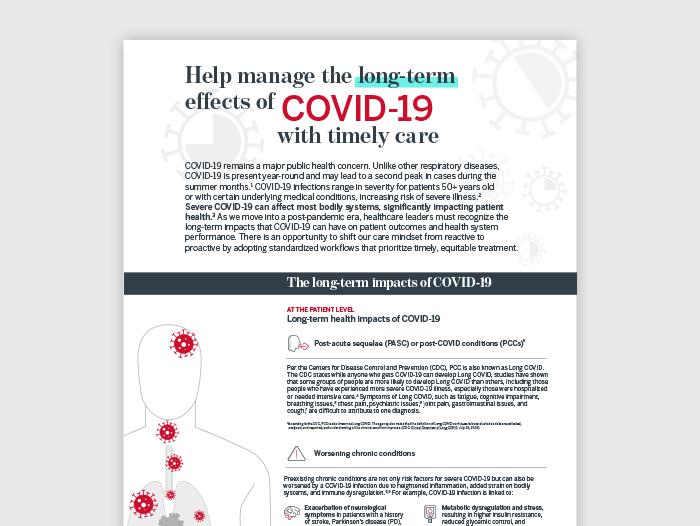Auto logout in seconds.
Continue LogoutFDA on Monday approved new COVID-19 vaccines for this fall. And with CDC expected to offer a recommendation soon, the shots could be available in pharmacies, clinics, and doctor's offices by the end of the week.
FDA approves new COVID-19 shots
The new monovalent shots, which were developed by Moderna and Pfizer-BioNTech, target the XBB.1.5 subvariant of omicron and were approved for everyone ages 6 months and older.
Health officials noted the vaccine is not a booster shot but actually an entirely new formula.
"The public can be assured that these updated vaccines have met the agency's rigorous scientific standards for safety, effectiveness, and manufacturing quality," said Peter Marks, director of FDA's Center for Biologics Evaluation and Research. "We very much encourage those who are eligible to consider getting vaccinated."
CDC's Advisory Committee on Immunization Practices is expected to meet Tuesday to offer a recommendation of who should get the new vaccines.
According to Jennifer Kates, SVP and director of global health and HIV policy at KFF, the vaccines will remain free for most Americans with private health insurance or coverage through Medicaid or Medicare. Meanwhile, the Biden administration is working to provide shots for the uninsured at no cost.
Kelly Cunningham, a spokesperson for Moderna, said vaccine manufacturers are expected to donate doses for the uninsured.
Who should get the vaccine?
Federal officials will now have to consider whether to offer a broad recommendation that everyone get the new COVID-19 vaccine or offer a more targeted recommendation aimed at high-risk patients.
According to federal officials who spoke to the Washington Post on condition of anonymity, CDC is leaning towards a broad recommendation covering all ages, rather than a targeted recommendation.
Ashish Jha, dean of the Brown University School of Public Health and former COVID-19 czar for the White House, said he expects CDC "to come out and recommend [the vaccine] for everyone."
Peter Hotez, co-director of the Texas Children's Hospital Center for Vaccine Development and dean of the National School of Tropical Medicine at Baylor College of Medicine, agreed that people of all ages should get the shot.
"All the covid numbers are climbing, and it is a big unknown: Is this going to turn into a significant wave as we progress into the fall or not?" he said.
"Why should covid be different from the flu? Everyone is recommended to get the flu shot," said Katelyn Jetelina, an epidemiologist who consults for CDC. "Covid is more deadly, more contagious than flu."
However, John Moore, a professor of microbiology and immunology at Weill Cornell Medical College, said the new vaccine isn't likely to be a "game changer."
For healthier adults and children, "it's a boost in protection for a few months," he said. But exactly who would benefit most from the vaccine is hard to predict as the United States is "not a cookie-cutter population," Moore added.
The benefits of getting another COVID-19 vaccine "are just getting lower and lower for young healthy people who've had Covid before," said Walid Gellad, a drug safety expert at the University of Pittsburgh. "You have to think about how any risk can change that balance."
"Any efforts to promote the new boosters should focus squarely on those at high risk," said Norman Hearst, a family physician in San Francisco.
However, Daniel Griffin, an infectious disease physician at Columbia University, said getting the new COVID-19 shot could help stop the spread of the virus to the most vulnerable while also lessening a person's odds of a more serious outcome.
"So a younger individual may say, 'I'm not going to get a booster for the public health, but I am going to get a booster because if I can reduce my chance of getting Covid, I can reduce my change of long Covid,'" Griffin said.
If CDC offers a targeted rather than broad recommendation, that could cause barriers for many Americans who may not be among the most vulnerable but still want to get the shot for themselves and their children, as insurance companies wouldn't be required to pay for the vaccine, according to William Schaffner, an infectious disease specialist at Vanderbilt University Medical Center.
"The last thing we need are financial barriers that would enhance disparities," he said. (McGinley/Sun, Washington Post, 9/11; Jewett/Weiland, New York Times, 9/11; Lovelace, NBC News, 9/11; Allen, KFF Health News, 9/11; Mandavilli, New York Times, 9/12)
Develop a strong COVID-19 vaccine communication strategy that shares information, addresses patient concerns, and encourages uptake.
Don't miss out on the latest Advisory Board insights
Create your free account to access 1 resource, including the latest research and webinars.
Want access without creating an account?
You have 1 free members-only resource remaining this month.
1 free members-only resources remaining
1 free members-only resources remaining
You've reached your limit of free insights
Become a member to access all of Advisory Board's resources, events, and experts
Never miss out on the latest innovative health care content tailored to you.
Benefits include:
You've reached your limit of free insights
Become a member to access all of Advisory Board's resources, events, and experts
Never miss out on the latest innovative health care content tailored to you.
Benefits include:
This content is available through your Curated Research partnership with Advisory Board. Click on ‘view this resource’ to read the full piece
Email ask@advisory.com to learn more
Click on ‘Become a Member’ to learn about the benefits of a Full-Access partnership with Advisory Board
Never miss out on the latest innovative health care content tailored to you.
Benefits Include:
This is for members only. Learn more.
Click on ‘Become a Member’ to learn about the benefits of a Full-Access partnership with Advisory Board
Never miss out on the latest innovative health care content tailored to you.


